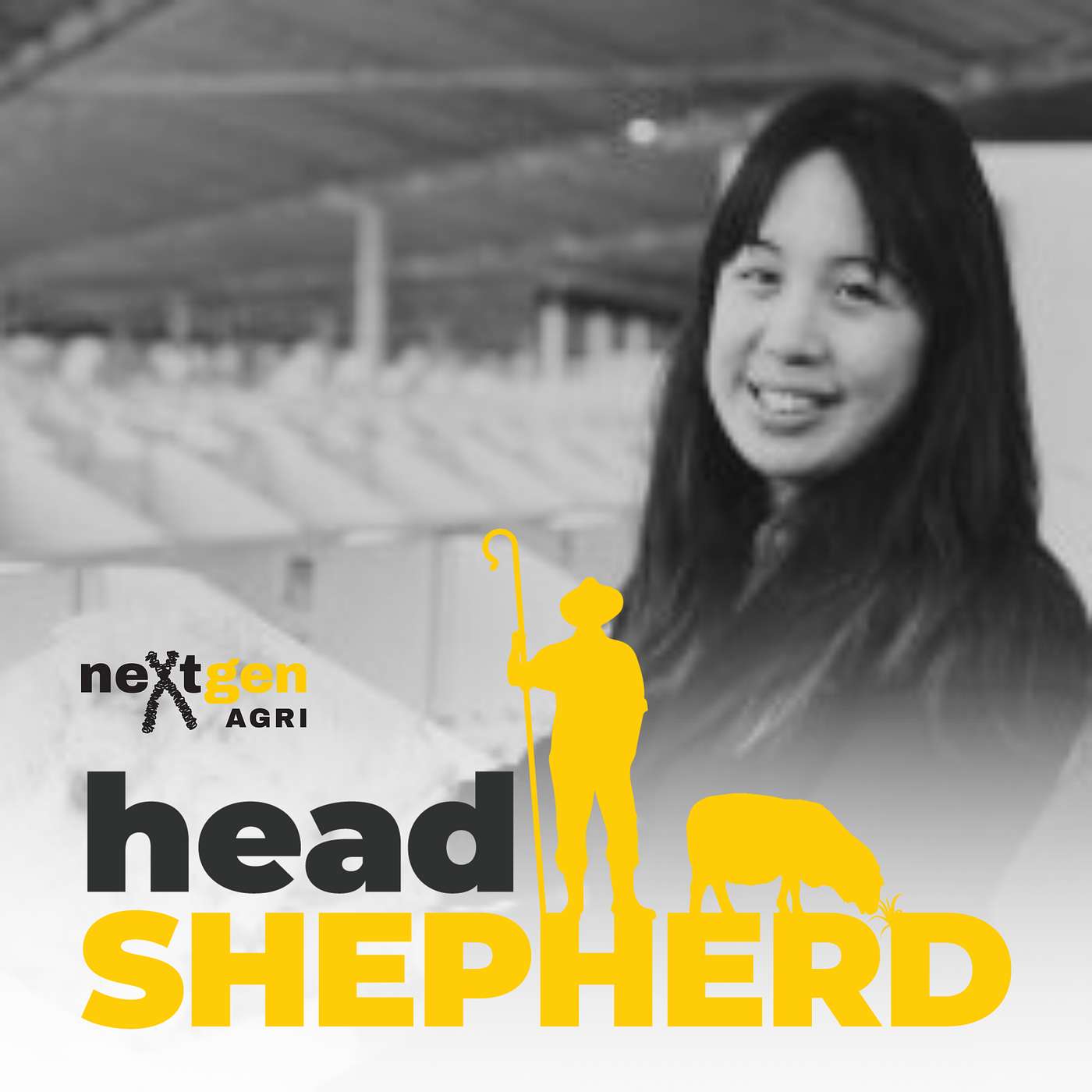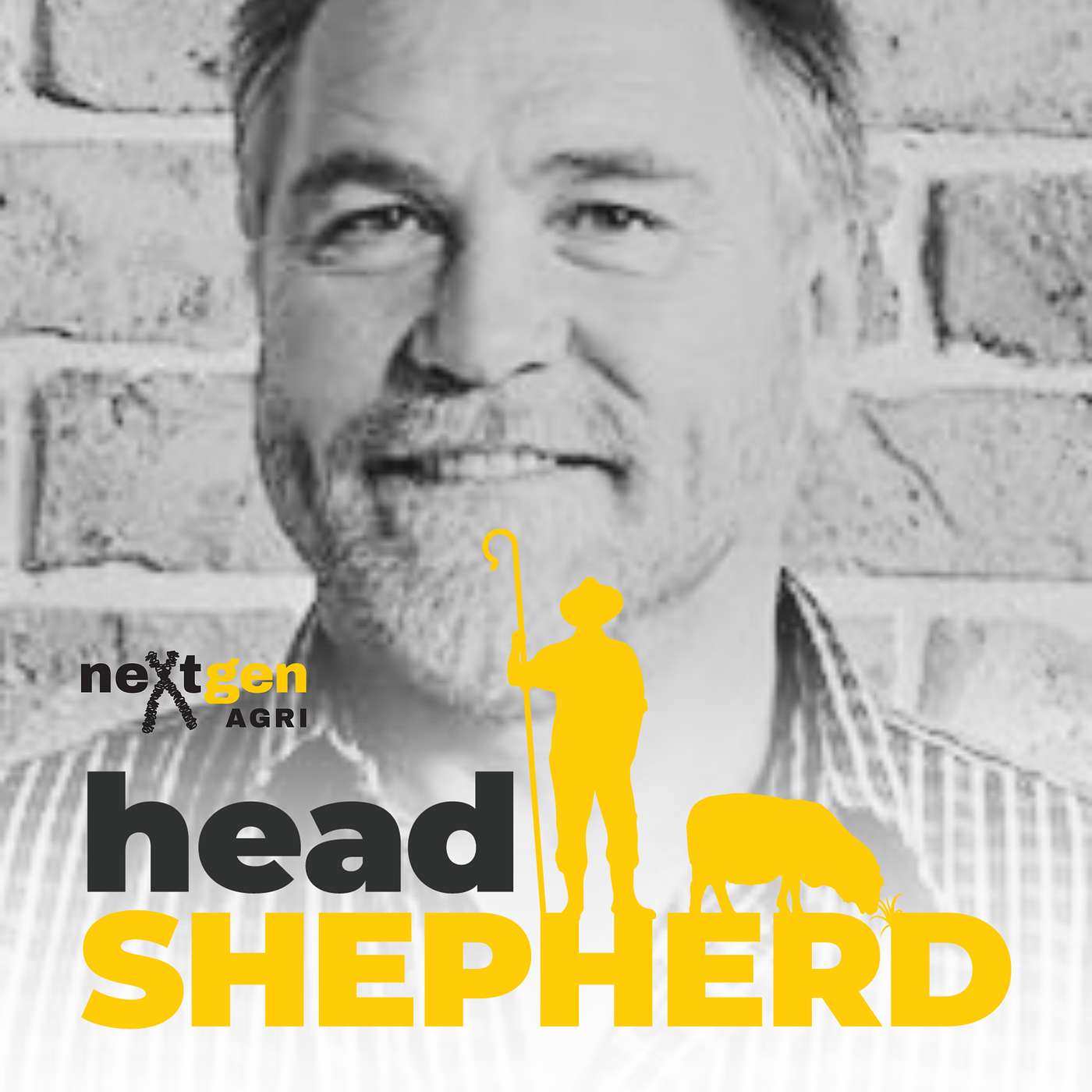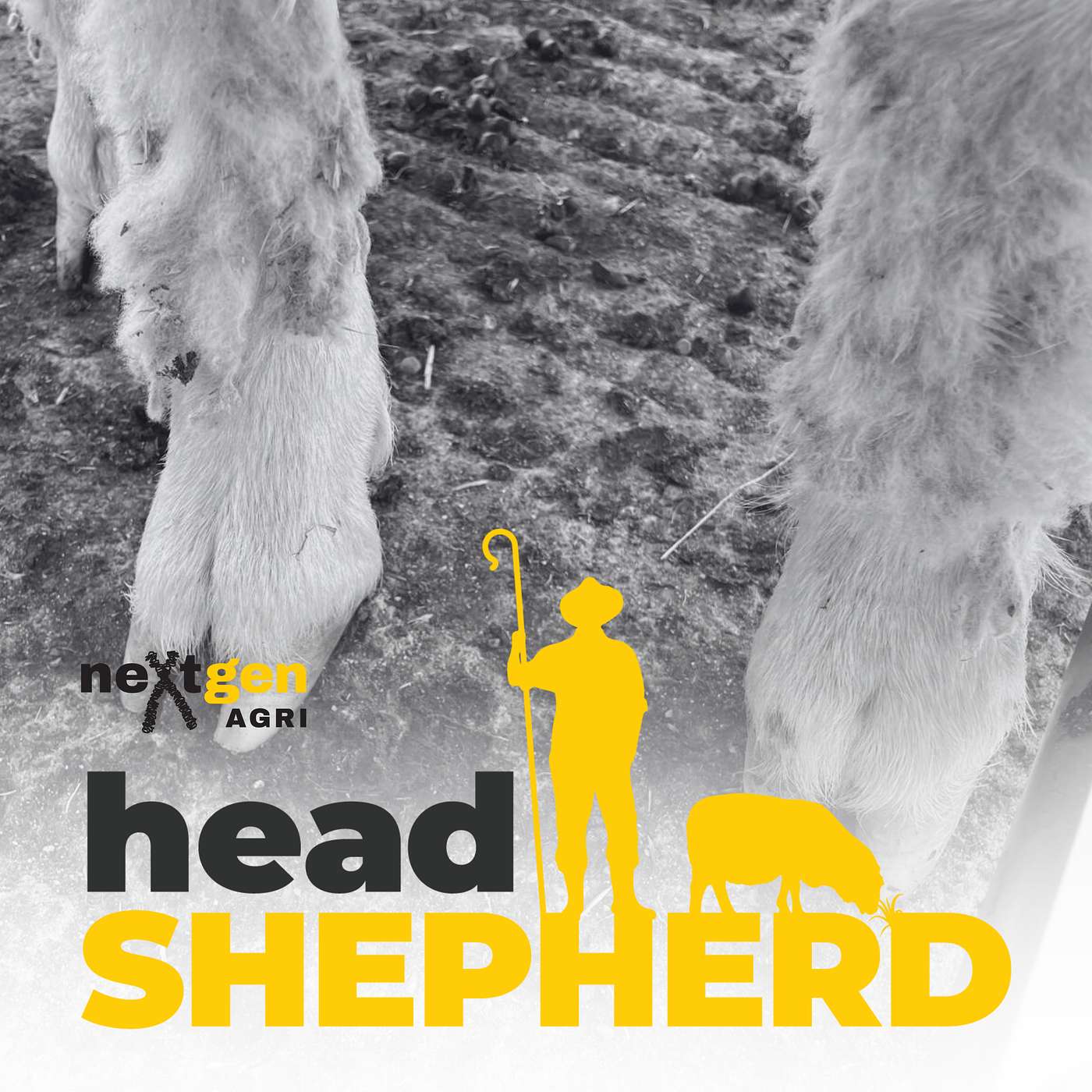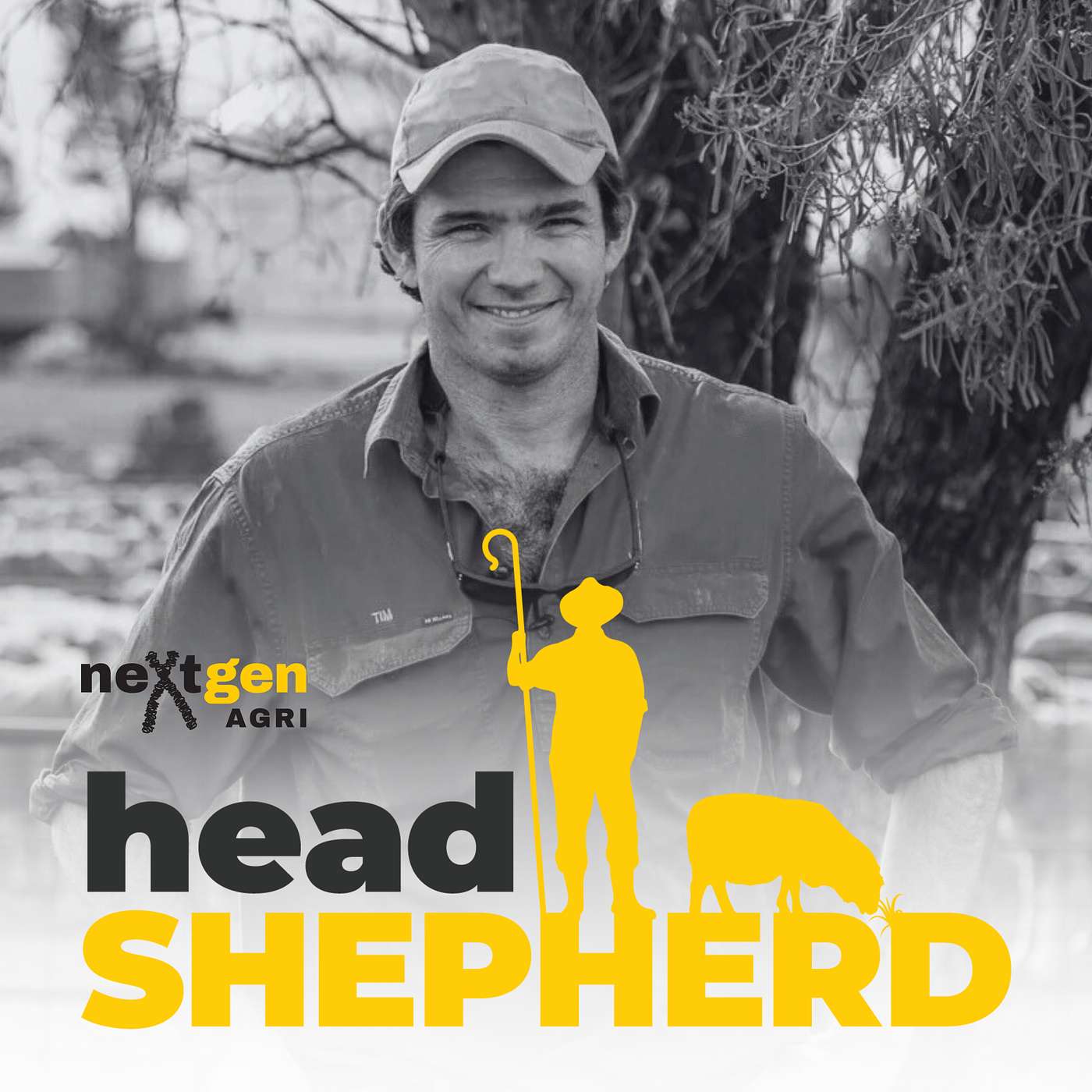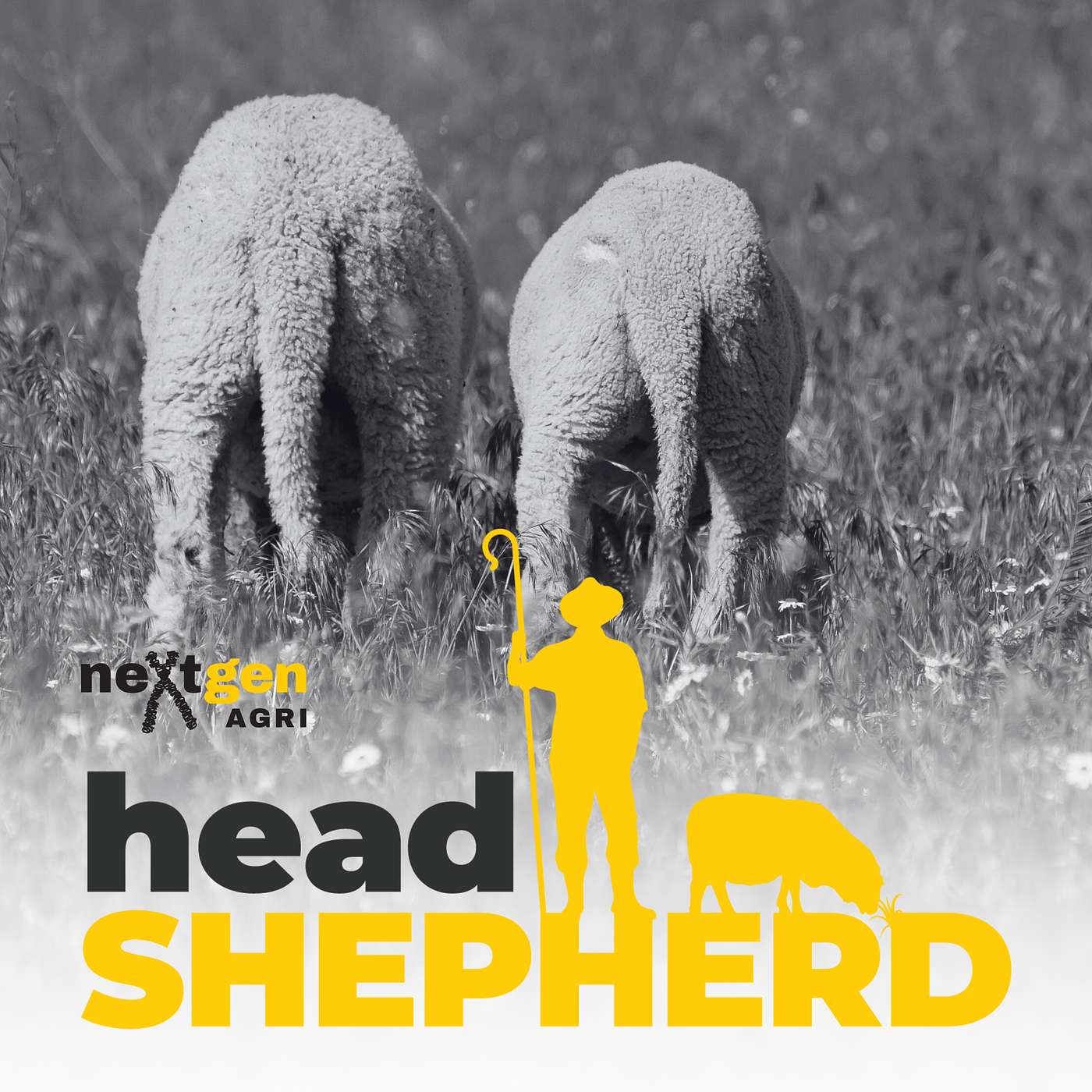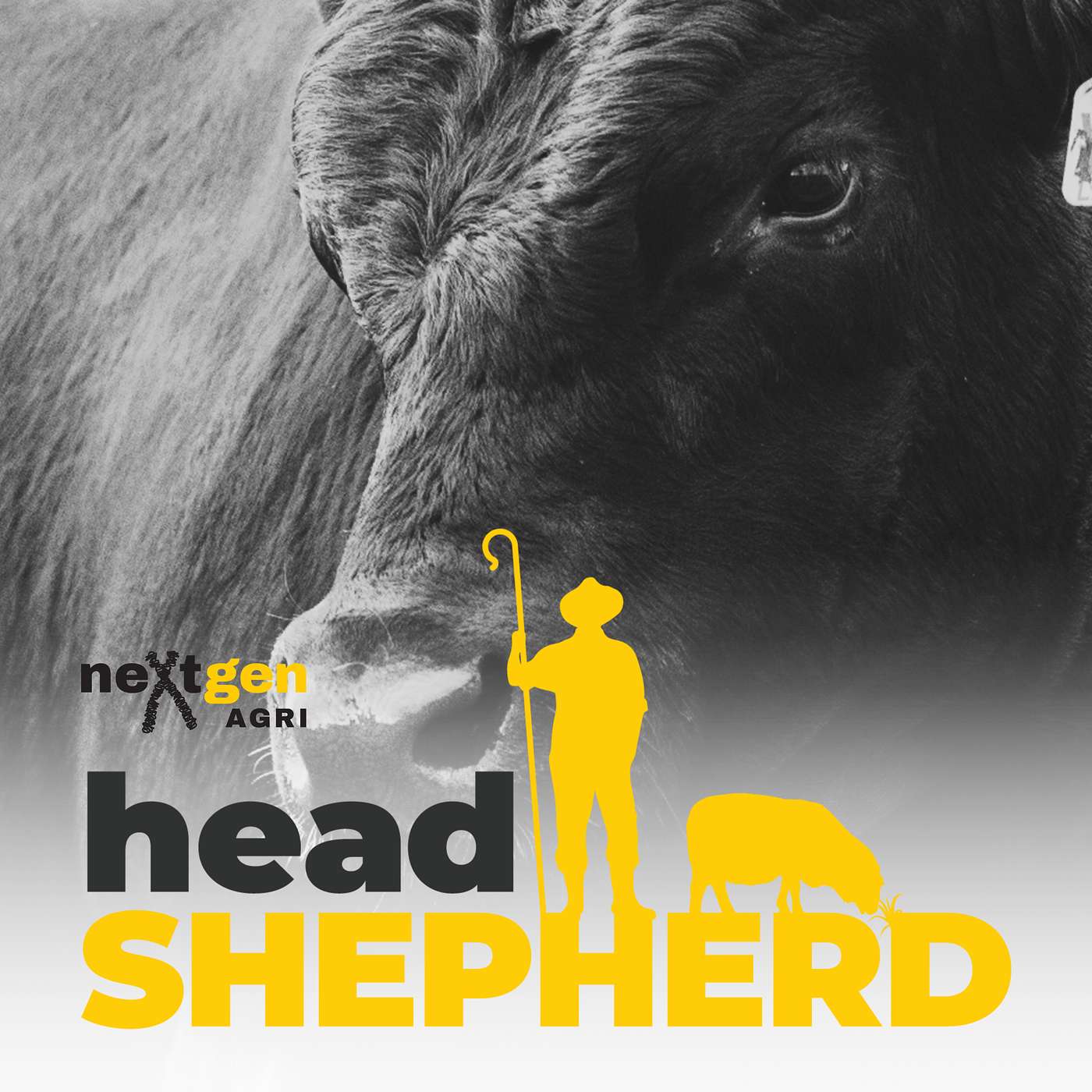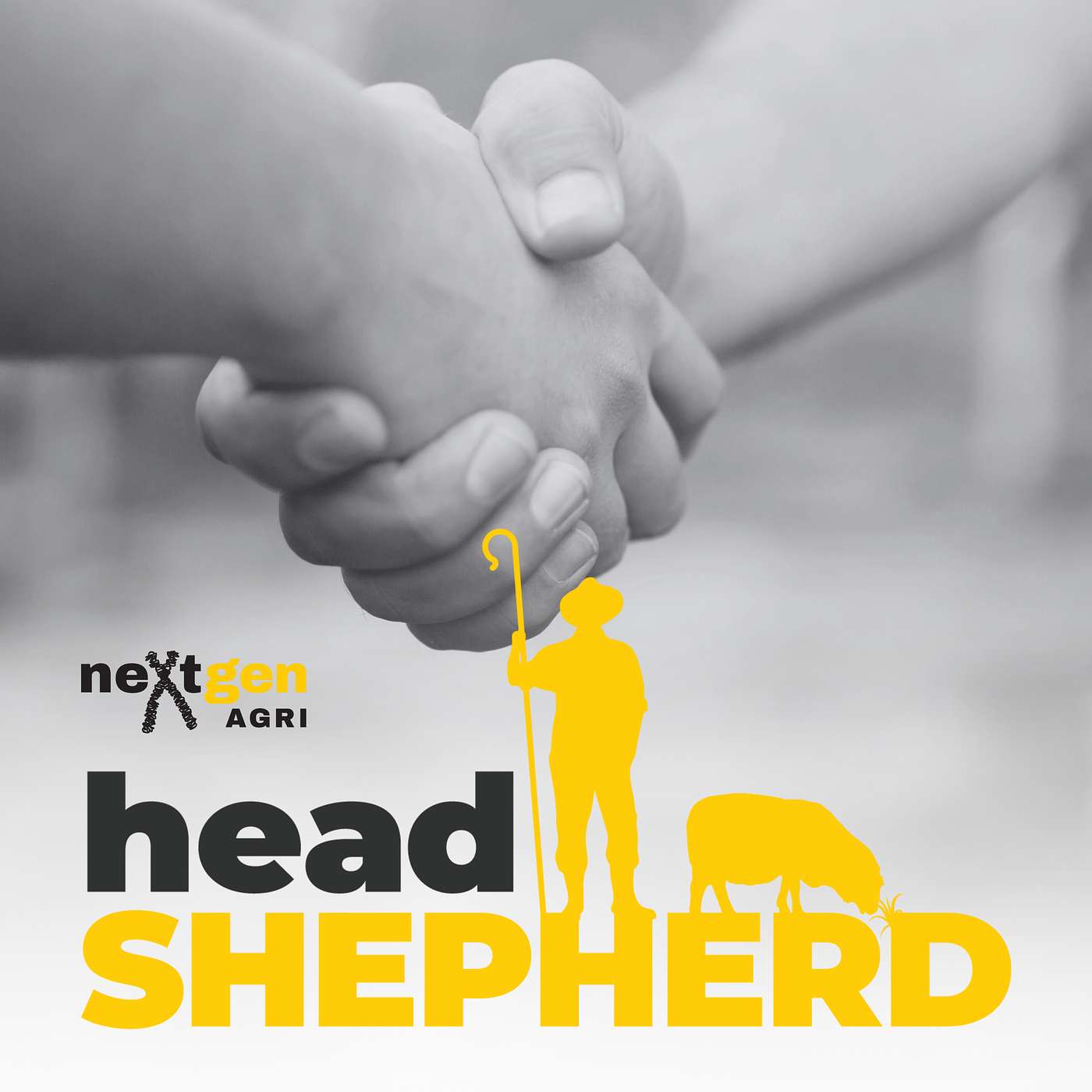Discover Head Shepherd
Head Shepherd

Head Shepherd
Author: Mark Ferguson
Subscribed: 154Played: 11,633Subscribe
Share
© 2026 Head Shepherd
Description
Mark Ferguson from neXtgen Agri brings you the latest in livestock, genetics, innovation and technology. We focus on sheep and beef farming in Australia and New Zealand, and the people doing great things in those industries. To learn more about neXtgen Agri, visit www.nextgenagri.com.
270 Episodes
Reverse
Ever wondered about farming New Zealand sheep in the UK, or considered farming UK shedding genetics in Australia? In this episode of Head Shepherd, Ferg speaks with Ian McDougall, a veterinarian whose career, and sheep, have taken across Australia, New Zealand and the UK. Ian grew up on marginal country on South Australia’s Eyre Peninsula before moving into veterinary work and artificial breeding. Over the past four decades, his work has involved embryo transfer, semen freezing and large scal...
Growing up in Western Sydney with no connection to agriculture, Samantha Wan’s path into the wool industry was anything but typical. In this week's episode, Sam talks with Ferg about finding agriculture through high school ag, building confidence without a family farming background, and the role mentors and community played in shaping her career. She and Mark discuss her work across the wool value chain, including auctioneering, technology and systems innovation within Elders, and the d...
How can commercial producers use breeding values without recording full pedigrees? This week, Mark chats with Carel Teseling, Chief Operating Officer at Angus Australia, to find out. Carel's career has taken him from South Africa's regional performance recording programs to 14 years of developing genetic tools for Angus Australia, a decade leading Australian Wagyu Association's genetics, and now back to Angus again, giving him unique insight into what actually works for producers across...
Ferg shares his thoughts on genetic gain in the sheep and beef industries. He has often said that we should be seeking to achieve a minimum of 2% genetic gain, but the top operators we deal with here at neXtgen Agri are consistently achieving 3-4%. Ferg explains how they’ve achieved that with the use of selection accuracy and the compounding effect of disciplined breeding decisions over time. Ferg also talks about what that genetic gain actually means for each farm and what traits we should b...
What if measuring worm resistance didn't require high parasite burdens and ALSO delivered double the heritability of egg counts? Sarah Preston, Lecturer at Federation University and cofounder of Swabtec, explains the development of their saliva-based test designed to measure immune responses to gastrointestinal worms in sheep, allowing resistance to be assessed without relying on high worm egg counts. She and Mark discuss why egg counts often fail to reflect adult worm burden, particularly in...
What limits ewe productivity in current sheep systems? Our guest this week, Tara Dwyer is breeding manager at Headwaters Genetics and a farm manager within the Lone Star Farms group. Her work covers stud breeding, commercial supply chains, and large-scale sheep systems, and in amongst all of that, she found time to do a Kellogg report, "A New Fleece on Life: How the Sheep Farming Sector in Aotearoa Can Halt Terminal Decline to Secure a Sustainable and More Secure Future" Starting with her "da...
Gus Rose shares the recent results from the 'Genetics of foot health in Merinos' project, which is looking at footrot and foot structure in sheep in Australia. Gus shares what the data shows on the heritability of foot shape and its relationship with footrot, as well as other foot structure traits. Gus Rose explains how the dataset is being built, which traits are proving to be correlated, and where the current limits sit. Gus and Mark discuss the project's future and the significance o...
On this week's episode, Tim Gole shares how sheep farmers can increase their profits by shifting from responding to problems to preventing them in the first place. Tim runs ForFlocksSake, a vet-based sheep consultancy company. After a lightbulb moment during the drought, Tim became a self-confessed sheep fanatic. With both Tim and Mark clearly in their element, they spend nearly an hour talking all things sheep. They discuss lifetime ewe programs, scanning strategies, the use of genetics to m...
What do the genetics of tail length and the genetics of semen quality have in common? Not much, except that our guest, Marnie Hodge, Sheep Genetics Senior Development Officer, has researched them both. Tail length is moderately to highly heritable, but in her research, Marnie found that measuring tail length in centimetres versus a scored system gives you far more accuracy and picks up significantly more genetic variation, which means faster rates of genetic gain if you're selecting for it. B...
How simple rotations and tight feed management lift whole farm performance. Mark chats with Bevan Ravenhill, WA General Manager for Lawson Angus WA, to talk about what really drives a productive grazing business. Bevan grew up on a dairy farm, and that early training in grass, rotation, and pressure has shaped the way he now runs sheep and beef across a mixed enterprise. Bevan explains how a simple rotation, tight feed management and a focus on leaf stage have transformed grass utilisat...
Ever wondered what it takes to build a succesfull seedstock buisness from the ground up? Well, this is the podcast for you. This week, Mark chats with Jasmine and Hayden Green, owners of Summit Livestock, about how they built their Angus and Limousin seedstock business from the ground up (and the challenges they faced), the importance of crossbreeding for production, how they balance phenotype with data, and the challenges of getting started without your own land. Jasmine and Hayden hav...
Accounting may not be every farmer’s favourite topic, but it is one of the most powerful tools on the farm. This week’s Head Shepherd guest, David Egerton-Warburton, explains why. Raised on a sixth-generation farm in Kojonup, Western Australia, David learned early that every on-farm decision ties back to sound business practice. His father, Kent, founded Agrimaster in 1981, bringing farm records into the computer age long before most households had a computer, and David and his wife have been...
What makes farmers change? And what holds them back? Our guest this week, Dr Ruth Nettle, has spent 25 years studying just that. Ruth has spent her career looking into how people in agriculture learn, adapt, and lead. Now leading the Rural Innovation Research Group at the University of Melbourne, Ruth has seen how agricultural extension, advisory networks, and rural communities have evolved through time. In this episode, she and Ferg chat about trust, workforce challenges, and what the future...
Want to know more about meat-eating quality traits like IMF, shear force and marbling? Our guest this week, Dr Peter McGilchrist, is a leading meat scientist and professor at the University of New England, Australia, likely has the answers you're looking for. Peter and Mark talk all things meat-eating quality and how the red meat industry can move beyond commodity pricing by identifying premium quality products through genetics, processing, and proper animal handling. Peter and Ma...
Ever wished you could get breeding values on your commercial Merinos without having to record weights, dates or pedigrees? This week, we’re launching neXtPredict, our brand new genomic tool that lets you go straight from DNA to breeding values with just a simple TSU sample. Developed in partnership with Weatherbys Scientific, neXtPredict provides base genomic breeding values, parentage, poll/horn testing and a flock profile for Merino breeders. It’s powered by the MerinoSelect database and ba...
What do you get when three sheep consultants, all podcast hosts, from Australia, England and Wales sit down in front of a microphone? You get a very entertaining, slightly chaotic, sheepy podcast! This week, we're joined by Liz Genever and Nerys Wright to discuss the launch of OptiEwe UK as well as the challenges and opportunities faced by farmers over there. Liz, Nerys and Ferg chat about this summer's extremely dry weather, current lamb prices, shifts in farming practices (and the rol...
Is drench resistance an issue on your property? Thanks to modern technology, we have tools at our disposal to help. This week's guest is Ryan Luckman, vet and founder of DAGI, (Drench and Grazing Integration), an app that displays the risk of larval challenge/resistance risk for the paddocks on your farm, helping you make better grazing decisions. With the help of industry experts and the support of B+LNZ, Ryan has been building the DAGI (Drench And Grazing Integration) app over the pas...
Thousands of you listen to the podcast every week, but we've come to realise many of you don't know exactly what we do here at neXtgen Agri. In this episode, Mark, our host and CEO, takes to the mic and chats about all things neXtgen Agri and the services we provide to farmers across the globe. He shares how “farming in our hearts, science in our heads” drives everything we do. From helping farmers lift genetic gain to building tools that make breeding decisions clearer and faster, Ferg...
Our guest this week is Vicky Alexandrou, co-founder of Woven Optics. Over the past eight years, Vicky has helped design and build a handheld microscope that lets you measure wool fibre diameter right there in the yards or shed. Instead of waiting for lab results, you clip a small sample, take a few quick images along the staple, and within seconds, the device tells you the mean micron, standard deviation, coefficient of variation, and comfort factor. You can scan the sheep’s ear tag so ...
What does leadership look like in agriculture today? For Felicity Taylor, Area Manager for Rabobank in Moree and a 2025 Zanda McDonald Award finalist, it’s about connection, community and supporting others to succeed. In this episode, Felicity shares her journey from growing up on a cropping property to becoming the youngest area manager in Rabobank’s history. She talks about the rising costs facing farming, the challenge for young people to get started, and why she believes regional Australi...



